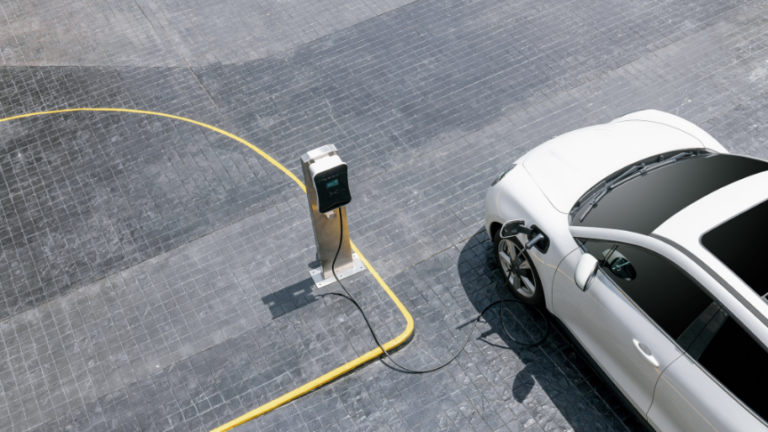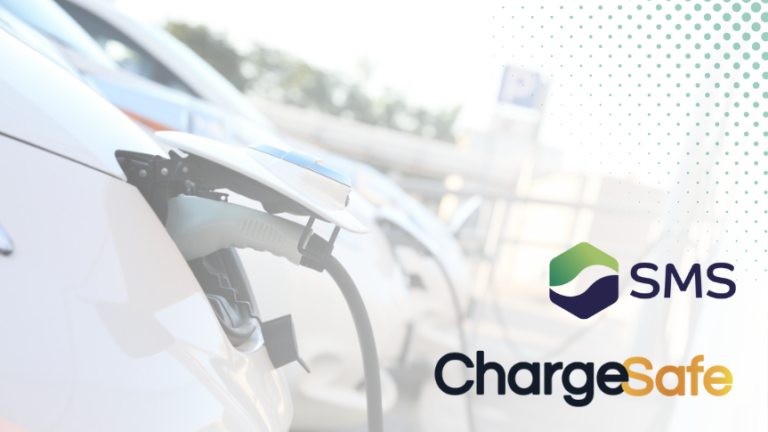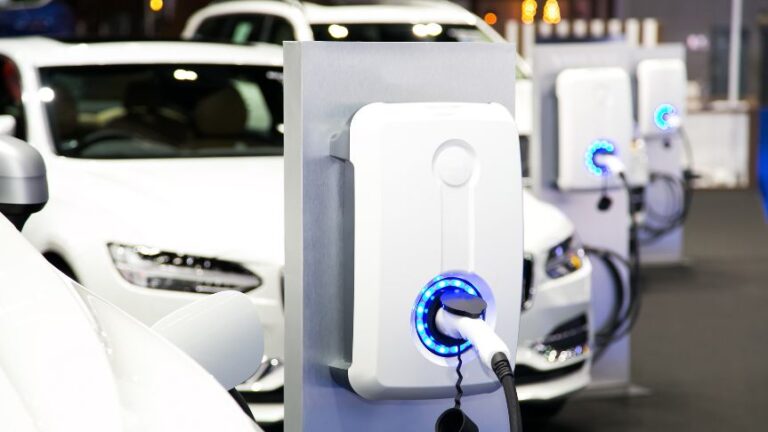Can supply of EV charging infrastructure catch up with rocketing EV demand?
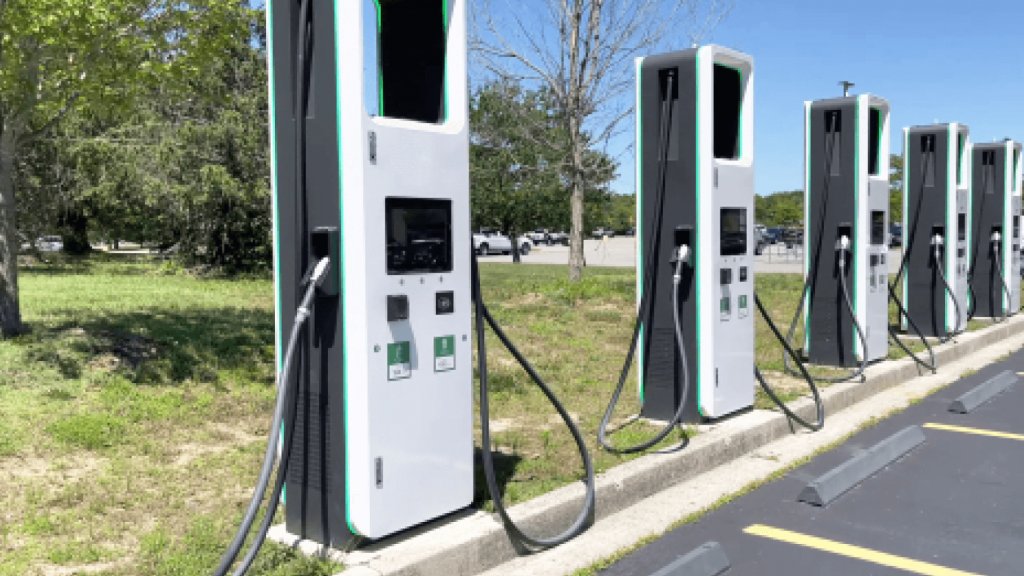
One of the biggest challenges facing the widespread adoption of EVs in the UK is the current shortage in EV charging infrastructure.
Recent trends do suggest the technology could be approaching a tipping point, with the number of EVs on UK roads now totaling over 115,000 up from practically zero just ten years ago. The demand for charging infrastructure needed to power these new-wave, eco-friendly automobiles is accelerating at an equally rapid pace.
However, such is the speedy uptake of EVs – it is estimated by National Grid that ownership figures will race to nine million by 2030 – the installation of electric charging points has so far struggled to keep up.
According to ZapMap, there are now approximately 14,000 public charging connectors around Britain at around 4,900 locations, meaning EV’s outnumber these individual plug-in points by eight to one.
While some have argued that the continued growth of EVs in the UK will be dependent on the wider availability of charging infrastructure, others say the growing appetite for EVs – especially as prices come down and technology improves – will naturally lead to more charging points being provided.
Whatever way this chicken and egg scenario plays out, one thing that we can all agree on is that though the number of public chargers has grown significantly in the last few years, more are definitely needed.
Fortunately, there has been some promising progress on this front in recent months.
An unstoppable EV trend?
Back in June 2017, the government’s new Automated and Electric Vehicles Bill was unveiled as part of the Queen’s Speech. When passed, the law will require all motorway service areas and large fuel retailers to roll out electric charging points, ensuring they are “convenient to access and work seamlessly right across the UK”
.
This was followed up in July by the announcement that the UK government would ban the sale of new petrol and diesel cars and vans from 2040 (with the Scottish government later going one better and committing to a date ten years in advance).
Then in October 2017 the Conservatives’ long-awaited Clean Growth Strategy outlined a plan to spend £1 billion on the decarbonisation of transport, including “supporting the take-up of ultra low-emission vehicles”.
All of this bodes extremely well for greater investment and wider availability in public EV charging infrastructure, with the private sector also following suit.
There has been a torrent of car makers committing to EVs over the last few months, with the likes of Mercedes-Benz, Volvo and Jaguar having announced plans to make all of their models electric within the next five years. Meanwhile, a mounting number of firms are investing in developing the EV charging network to match increased demand.
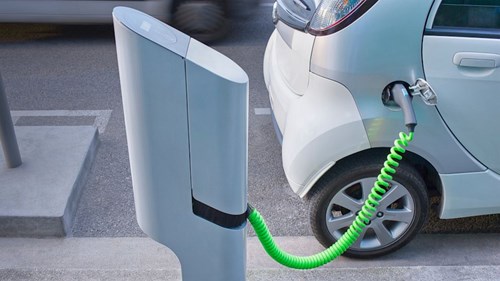
Nissan, for instance, recently revealed plans for its EV-charging fuel station of the future, while UK start-up EV Hub detailed its vision for charging stations that would also incorporate coffee shops and even fitness facilities.
In another more immediately tangible development for the technology, in October, the oil and gas giant Shell started rolling out its first wave of electric vehicle charging points at its UK petrol stations and also acquired NewMotion, a Dutch firm with 30,000 private charging points across Europe.
Shell’s venture into the EV charging market is being dubbed as a sign of things to come by commentators, with more big oil and gas firms expected to reciprocate as the popularity of electric vehicles proliferates (and as the Automated and Electric Vehicles Bill comes into force).
Indeed, a recent report based on current trends suggests that EV charging locations will outnumber petrol stations in the UK by as soon as 2020.
All of this is enough evidence to suggest that EVs are not just a trend, but here to stay. However, that is not to say that serious challenges for their long-term viability remain.
Public chargers vs home chargers
Aside from the availability of charging points themselves, one other major obstacle facing the growth of EVs is the technology involved in charging them more efficiently, as well as keeping them powered for longer periods.
For instance, using the new 50kW rapid chargers now being installed by Shell at their petrol stations (which are currently the most advanced chargers on the market), it will still take drivers with an average EV battery size approximately half an hour to recharge to 80% capacity – about 29 minutes longer than it takes to fill the equivalent amount of a petrol car tank.
If charging at home, which is more of a norm at the moment for EV owners, the time this same 80% charge would take using the average home battery charger (3.5kW) rises to over six hours!
While advancements in EV battery and charging technology will undoubtedly make the ‘refill’ far less of a painful process in the future, the combination of bigger batteries, larger kW chargers, and the sheer quantity of EVs in operation is set to result in a massive demand surge for electricity in coming years, creating epic challenges for the grid (a topic that we covered in our previous blog in this series).
Though Smart Charging is set to become more commonplace, helping curb the impact of EVs on the electricity network by spreading demand away from peak times, even then it is thought that too many private charge points will cause overwhelming network stress.
This is an assertion backed up by National Grid’s recent Forecourt Thoughts report, which concluded that even with smart charging widely in use, if we are to have long-range vehicles that can be charged in minutes, home is “not going to be the place to do it” – especially considering that half of UK households do not have access to off-street parking.
Thus, with commercial sites able to support power requirements at a much greater level than domestic sites, the case for the installation of wider public charging infrastructure to cater for growing EV use is strengthened further still.
The SMS view
In order to see a national network of high-powered EV charging stations grow, greater public and private investment in developing the necessary technology and rolling out the infrastructure will be needed.
We therefore welcome the government’s £1bn Clean Growth Strategy commitment to support the innovation and expansion of the industry, while recent forays by organisations such as Shell into EV charging can only spell good things for its progress, paving way for more big firms to jump on the EV bandwagon (one that is rapidly gaining pace!).
While there is already a huge gap in the market for more EV charging points up and down the country (a gap that is currently only getting wider), the Clean Growth Strategy – along with the government’s Automated and Electric Vehicles Bill – will open further opportunities for the private sector – be it charging suppliers, car manufacturers, or fuel retailers – to get involved or boost their EVC portfolios.
Supermarkets – due to their predominance when it comes to fuel facilities – are also potential big players in the market. This potential is enhanced by the fact that with charging currently as time-consuming as it is, the process could easily be integrated with the customer’s retail experience. Many of the designs for modern EV charging forecourts follow this model, with added amenities for retail and recreation included on site.
As an expert electricity connections provider, we are able to fully support businesses wishing to realise these opportunities in EV charging.
About us
Counting on over twenty years of experience, we provide and manage electricity connections solutions throughout the UK. Our services cover the entire connections process, from the initial feasibility stages and design, to the procurement of utility quotations and final installation works.
Additionally, our Wayleaves department can also help to challenge and secure rights for the existing and proposed infrastructure required to connect any EV charging site.
Thanks to our status as one of the UK’s leading Meter Asset Providers (MAP) and Meter Operators (MOP), we are also in a position to offer a further tailored and flexible service through our ability to fund, install and operate large volumes of electricity meter assets, including the provision of ongoing maintenance and repairs.
Owing to this rare breadth of service and our reputation for the highest-quality client relations, we are one of the UK’s first choice electricity connections providers, and are therefore primed to help move the country forward in this EV revolution.
If you are interested in our connections services, don’t hesitate to call us on 07376 490 650 or email us and we’ll get back to you.
